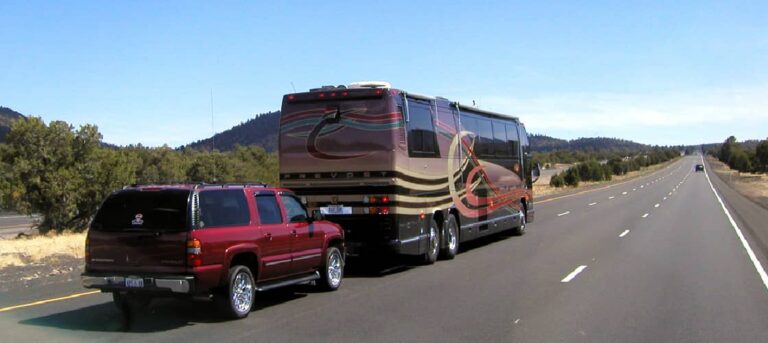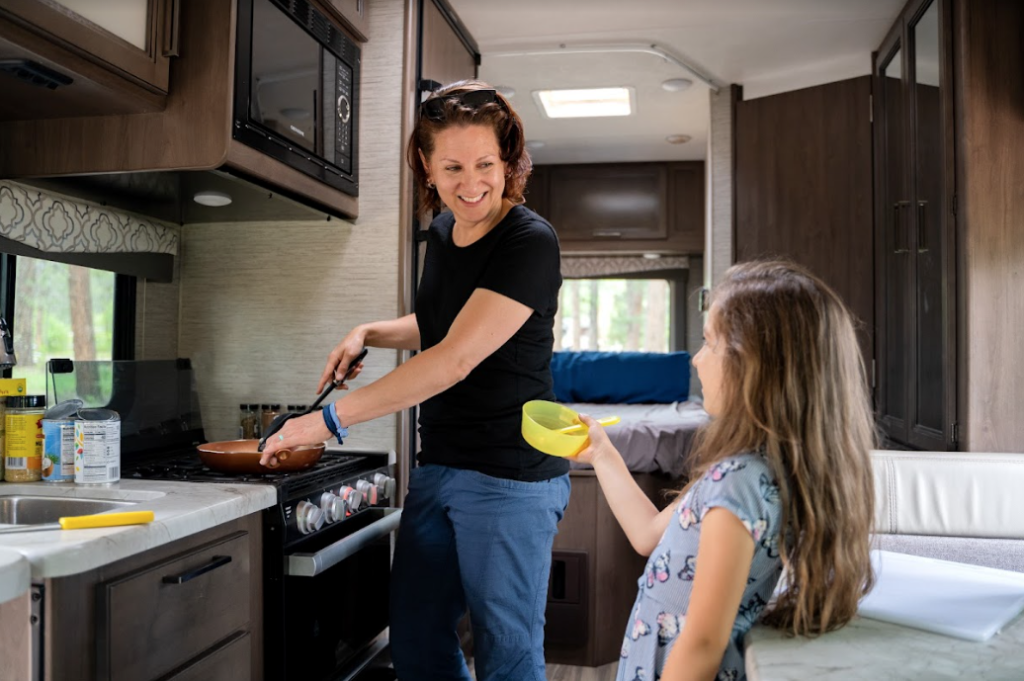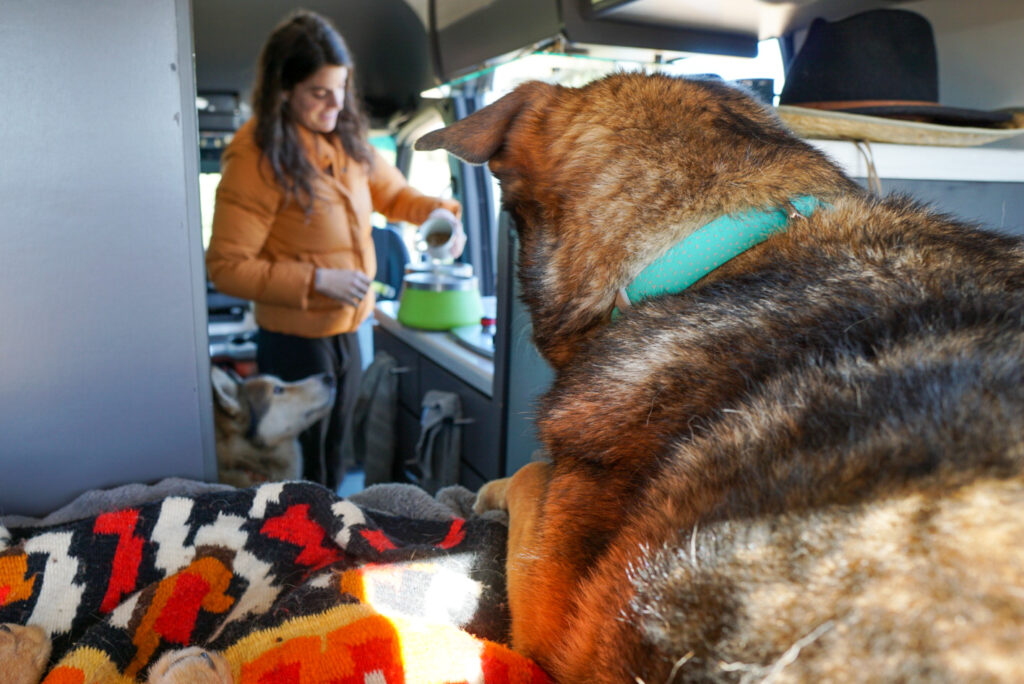
Renting an RV for the first time can be intimidating. You may feel like you don’t know how to get started, what questions to ask, or like you’re unprepared to operate the RV. In this article, we’ve pulled together some of the most frequently asked questions by new renters. Hopefully, we can answer your questions and help you feel more confident as you navigate renting your first RV.
RV Sizing
RV sizing is the first thing you’ll want to get right when you’re looking at rentals. Here are some common questions and advice on RV size for beginners.
What size RV should I rent?
If you’re a beginning RVer, you may not be sure what size RV you want to rent. There are a few factors to consider when choosing an RV size, but the first is to simply figure out how many people will be staying in the RV. The rental listings for each rig on RVshare should tell you how many people it can accommodate.
As you browse the RVs, you’ll notice there are different classes. Class A motorhomes are the large, bus-style RVs – they’re the biggest option you’ll have for a rental. Much smaller units include Class B campervans which usually sleep from 1-4 people in a much smaller space. Class C campers are right in the middle. They’re the RVs you see with an overhang over the cab. They’re smaller than Class As and larger than Class Bs and they’re usually a great choice for families.
Other things to consider when deciding on your RV size include how comfortable you will be driving each of the different types of RV.
If you have a large truck, you can also consider a trailer for your trip. With a trailer, you can set up camp, detach your vehicle, and have that vehicle to drive around and explore. Some trailers, called toy haulers, even allow you to bring along large items like kayaks or ATVs to use at your destination.
What is the weight limit for cargo?
You may be wondering how much gear you can safely bring along in your RV rental without overloading it. Newer RVs must have a Cargo Carrying Capacity number on the RV’s identification label to let owners know how much weight it can handle. This label is usually inside a cabinet or closet and is the size of a piece of paper.
If you’re renting from RVshare, the available cargo weight may also be listed in the description. If it isn’t, you can ask the RV owner how much the RV can carry.
You can find out the total weight of your RV, with all its cargo, by going to a weighing station and having the vehicle weighed.
RV Driving
Driving an RV for the first time is certainly different than driving a car, but with a little practice, you can become comfortable with it.
Do I need a special driver’s license to drive an RV?
You do not need a special driver’s license to drive most RVs. If your RV is less than 26,000 pounds and 40 feet long, you should be able to operate it with a normal driver’s license. If your RV is longer than 40 feet, or heavier than 26,000 pounds, you may need to take an RV safety course or get a Commercial Driver’s License to operate it.
What is the fuel efficiency of the RV?
The fuel efficiency of your RV will depend on the size of the rig you’re driving. Large Class A RVs usually get 6-8 miles per gallon, Class B campers can get up to 15-18 miles per gallon. Class C campers range from 10-13 miles per gallon, and trailers will affect your gas mileage as well.
The amount of money you budget for fuel on your trip will depend on how far you’re driving and how much gas costs in the area where you fill up. AAA has a gas cost calculator that can help you predict what gas will cost on your road trip.
Some RV rentals also have mileage fees you may need to include in your cost. Some owners include a certain number of free miles each day, and then charge in increments beyond that. If you exceed the mileage allowance, you could be charged between $0.25/mile and $0.50/mile, although some particularly luxurious RVs may charge up to $0.80/mile for anything beyond the set amount. You can find all of this information on the listing details page for the RV you want to rent.
What kind of driving experience should I expect?
Driving a Class A motorhome, or even one of the smaller RVs, can be an intimidating idea if you haven’t done it before. It is certainly possible for you to learn to drive one, but you’ll want to keep a few things in mind when you do:
- Ask lots of questions: When you pick up your RV, do a thorough walk-through with the owner. Have them demonstrate how to drive, and ask any questions you have. Find out how to contact them if you have more questions when you actually drive the rig.
- Take time to practice: Practice driving around an empty parking lot to get an idea of the turn radius, braking time, and other idiosyncracies of driving a large vehicle.
- Take things slow: A large RV won’t drive like a small sedan. Plan on driving much slower than you would in your regular vehicle, and plan your mileage each day to be less than that of a smaller vehicle.
- Take a break, if needed: If you’re feeling strain or stress after driving for a while, pull into a parking lot and take a break. Stretch out your legs. Reset. Maybe even have your partner drive for a bit. Driving a large vehicle can be tiring, especially if you’re somewhat nervous.
RV Rental Amenities

When you rent an RV, you’re often not simply renting the vehicle. You’re getting items like kitchen supplies, linens, and sometimes even chairs, paddleboards, a grill, or other fun items.
What is included in the rental?
The listing details page of the RVshare listing should describe everything included with an RVshare rental. Some items might be included, some might be available for an extra fee, and others you may have to bring along with you. If it isn’t clear from the listing, or if there’s a specific item you want to check is included, you can also ask the RV owner.
How do I operate the RV’s heating, air conditioning, and appliances?
RVshare owners should give renters a complete walk-through of the vehicle before it changes hands. They should show you how to operate all of the RV’s systems including the heating, air conditioning, slideouts, appliances, and any other systems. Owners can explain how to hook the RV up to sewer, water, and electric hookups if those are available. They can also explain how to dump the tanks and anything else you’ll need to know to operate the RV you’re renting.
RVshare owners should also have an owner’s manual available for you to refer back to during your trip. You can also find many owners’ manuals available online.
RV Insurance & Policies
As with operating any vehicle, you’ll need insurance while driving an RV. Below is RV rental insurance explained for those who are new to these policies.
What kind of insurance do I need?
Every RVshare renter must have RVshare Insurance and Protection coverage for their trip. This applies to both road trips and rentals where owners set up the rig for renters.
The Essential Package for insurance protection is automatically included in the quote you get for renting from RVshare. You can opt for a different package – all of the RVshare packages are outlined so you can choose the one that suits you best.
What’s the cancellation policy?
RVshare owners are allowed to select from three different cancellation policies. The policy they have chosen should be outlined on the listing details page, so you can see it ahead of time. Those policies are:
- Flexible Policy: Gives renters a full refund minus the RVshare service fee, for any cancellation made at least 30 days before the rental start date. If the renter cancels less than 30 days before the scheduled rental, they get 50% of their fees refunded, minus the RVshare service fee.
- Standard Policy: The renter gets a full refund, minus the RVshare service fee, for any cancellations made at least 30 days before the rental start date. They get 50% of their money back, minus the RVshare service fee, for any cancellations between 29 and 14 days before their rental start date. If the rental is canceled within 14 days of the start date, the fees are non-refundable.
- Strict Policy: Gives renters a full refund minus the RVshare service fee for any cancellations made at lest 30 days before the start of the rental. Any cancellations within the 30-day window before the rental start date are non-refundable.
RV Camping
Along with driving the RV, as a first-time renter, you may have questions about how to hook up an RV at a campground, or other camping-related questions.
Can I park the RV anywhere overnight?
You can’t park the RV just anywhere overnight. Some parking lots, garages, and neighborhoods have restrictions on RV parking.
You can, of course, park your RV at a campground where you have a spot. There are also a few places that offer free RV parking and camping, usually for just one night. Many Bureau of Land Management areas also allow free camping, often for up to 14 days at a time. If you plan to park your rental in a friend or family member’s driveway (a practice called “moochdocking“), you’ll need to make sure there are no HOA regulations or local laws prohibiting this.
What type of hook-ups do campgrounds typically offer?
Campgrounds can run the gamut, from offering no hookups at all to RV campgrounds with hookups for water, sewer, and power. Generally speaking, the more expensive the campground, the more amenities, including hookups, you can expect. If the electric hookup you’re connecting to is not the same as your vehicle’s, you may need an adapter. You may also need one to hook up to water.
You can ask the RV owner if you’re likely to need adapters, if they have the ones you’ll need, and if they can show you how to use them.
How do I hook up the RV at a campground?
Once you’ve parked your RV at a campground, you’ll want to hook up the utilities so you can have water and power. To connect your utilities, you’ll want to make sure the power supply matches and determine whether you need adapters. Then, you’ll plug your RV’s power cord into the electrical pedestal at your campsite. You’ll want to connect your RV water hose to the water spigot at the campsite. A water pressure regulator will help protect your RV’s plumbing. Next, you’ll want to hook up the sewer hose. Attach one end of the hose to your RV’s sewer outlet, and attach the other end to the campground’s sewer connection. Make sure both ends are secure so you don’t get any leaks.
Finally, if your campground offers cable TV, connect the line so you can watch TV.
How do I properly dispose of wastewater?
If you don’t have a sewer connection, you can dispose of wastewater at a dump station. Some campgrounds have their own dump stations, while in other cases you’ll have to find a nearby dump station outside the campground.
At the dump station, you can empty your septic tank and safely get rid of your gray and black water. You are not required to visit a particular dump station when you rent an RVshare vehicle. You can use any station that is convenient.
What apps or resources are recommended for RV travel?
There are plenty of helpful apps for RV travelers. Here are some of the best RV apps for road trips, covering how to find cheap gas, how to get to your destination, how to find camping, and more.
- Google Maps: The best free GPS app to get you where you’re going. Keep in mind that Google Maps wasn’t made with RV travelers in mind, so you may want to check narrow roads and other obstacles. RV Life GPS is one of the best paid navigational apps, and was made specifically for RV travelers.
- Allstays: This app searches for campsites and helps you book them. You can also find dump stations, rest areas, and even information on road grades.
- Gas Buddy: This app helps you find the cheapest gas along your route. It’s definitely useful for trying to keep RV fuel costs down as you travel!
Pets

Many people love traveling with their pets … including many RVshare owners.
Are pets allowed in the RV?
Many RV rentals allow pets to stay in the RV as well as people. When you’re searching for an RV rental on RVshare, you can click the filter button for “Allows Pets” to see all rigs that allow your furry friend. Many owners charge an extra fee or deposit for pets, so you’ll want to contact the owner. Ask them about all of their RV rental policies for pets, including any extra fees or other limitations.
RV Maintenance
One of the joys of renting an RV instead of owning one is that you don’t have to worry about much of the maintenance these vehicles require. But, as with any vehicle, you may have some maintenance concerns while you’re on the road.
What should I know about RV maintenance on the road?
RVshare has a roadside assistance program available 24 hours a day, every day, to help with any breakdowns or mechanical issues while you’re on your road trip. You’ll begin by calling their call center, where RV experts can walk you through any incident you have. If you need it, they also has a nationwide network of service provides to offer even more help.
RVshare’s roadside assistance program can give help if you run out of gas, need a tow, need a tire changed, or have slideouts or other mechanical services that don’t work.
RV Rental Restrictions
While RVing is a great way to take a free and easy road trip, there are some limitations.
Are there restrictions on where I can take the RV?
RVshare has some limits on where you can take the RV that you rent. However, it’s important to check with the RV owner as well. Owners may also impose limits on where you can drive their vehicle.
RVshare allows RVs to be driven across the United States and Canada. The company does not permit renters to drive their rigs into Mexico.
Make sure to communicate with the RV owner where you plan to drive, to make sure that’s allowed by them. Some owners may have restrictions on how far they want their RVs driven, or on what kind of terrain they want you driving.
You may also face restrictions on certain roads because of your RV’s length, weight, or height. Some narrow roads or roads with low bridges and overpasses may not be driveable for RVs. Use an app like RV Life Trip Wizard to safely plan your RV road trip and avoid these kinds of hazards.
RV Rental Returns
Once you’re finished with your trip, it’s time to return the rental!
What’s the process for returning the RV?
You’ll want to make sure you remove all of your personal items from the RV before you return it to the owner. The owner may also have some return requirements, such as refilling fuel or propane tanks, washing the exterior, cleaning the interior, and dumping the waste tanks. The owner should outline all of these requirements before you agree to rent the vehicle, so there are no surprises.
If there was any damage to the RV, be sure to tell the owner so they can get it fixed before renting it again. It’s also a good idea to take photos of the RV before returning it to the owner.
After you have returned the RV to the owner, you’ll get an email with a link to give feedback.
Owners have up to 72 hours after your reservation is over to review their RV and complete their return form. You’ll be notified when your security deposit is released, or if there are any charges from the trip.
Renting an RV for the first time can be an unnerving experience, and you may be nervous or anxious about the experience. Fortunately, everyone you encounter wants to see you succeed and enjoy the RV life as much as they do! Don’t be afraid to ask questions of the owner and to take things slow when you get your first rental. With a little prep and practice, you’ll be an RVing pro in no time.

